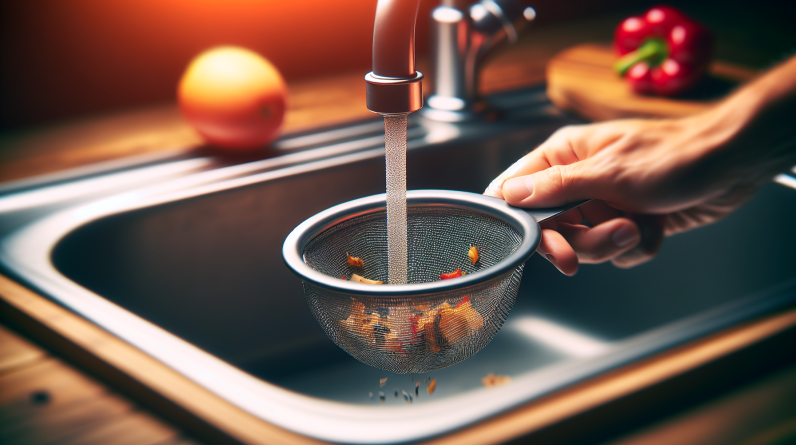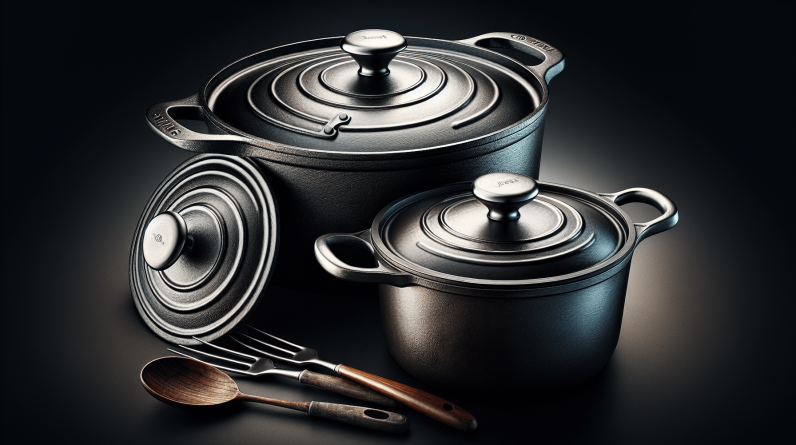In the world of kitchen appliances, it is an unfortunate occurrence when a favorite device decides to malfunction. It leaves us pondering the inevitable question: should we repair or replace it? This article aims to shed light on this common dilemma, exploring the various factors to consider when faced with a faulty kitchen appliance. By weighing the costs, longevity, and environmental impact, we hope to guide you towards making an informed decision that will have your kitchen up and running smoothly once again.

Cost considerations
Cost of repairs
When faced with a faulty kitchen appliance, one of the first factors we need to consider is the cost of repairs. Will the expense of fixing the appliance be reasonable or will it amount to a significant sum? It is important to weigh the cost of repairs against the value and lifespan of the appliance. Sometimes, the cost of repairs may be so high that it makes more financial sense to replace the appliance altogether. However, in other cases, repairing the appliance may be a cost-effective solution.
Cost of replacement
On the other hand, replacing a faulty kitchen appliance with a brand new one incurs its own set of costs. The price of purchasing a new appliance can vary significantly depending on the make, model, and features desired. It is important to research and compare different options to find the best balance between quality and affordability. Additionally, it is advisable to factor in any additional costs such as installation fees or disposal fees for the old appliance.
Comparing the costs
When deciding whether to repair or replace a faulty kitchen appliance, it is crucial to compare the costs of repairs and replacement. If the cost of repairs is significantly lower than the cost of replacing the appliance, it may be more sensible to opt for repairs. However, if the cost of repairs is high and close to or exceeds the cost of a new appliance, it might be more economical in the long run to invest in a replacement. This comparison will help us make a well-informed and cost-effective decision.
Extent of damage
Assessing the damage
Before determining whether to repair or replace a kitchen appliance, it is essential to carefully assess the extent of the damage. Some issues may appear major at first glance but can be easily resolved through simple repairs. Conversely, seemingly minor issues may indicate underlying problems that could lead to more significant damage in the future. By conducting a thorough evaluation of the appliance, we can determine the best course of action.
Severity of the issue
The severity of the issue also plays a crucial role in our decision-making process. If the problem with the appliance is minor and does not hinder its performance or safety, it may be more reasonable to repair it. However, if the issue poses a significant risk or compromises the functionality of the appliance, replacement might be the safest option. It is important to prioritize the safety of the household and consider the potential risks associated with using a faulty appliance.
Repairability of the appliance
Not all kitchen appliances are created equal when it comes to repairability. Some appliances are designed with repairability in mind, making it easier to fix any issues that may arise. On the other hand, certain appliances may have complex internal components or be built in a way that makes repairs challenging or even impossible. Understanding the repairability of the appliance can help guide our decision-making process by allowing us to assess the likelihood of a successful repair and the associated costs.

Age of the appliance
Determining the age
The age of the appliance is an important factor to consider when deciding between repair and replacement. Older appliances may be more prone to breakdowns and may have surpassed their expected lifespan. Determining the age of the appliance can be as simple as checking the purchase date or consulting the manufacturer’s documentation. This information provides context and helps evaluate whether it is more beneficial to repair an older appliance or invest in a new one.
Expected lifespan
Each kitchen appliance has a typical lifespan, which can vary depending on the make, model, and usage. Understanding the expected lifespan of the appliance can assist in making an informed decision. If the appliance is relatively new and has not yet reached its expected lifespan, repair may be the more logical choice. However, if the appliance has already surpassed its expected lifespan or is nearing the end, replacement may be a more prudent investment for long-term functionality and reliability.
Considerations for older appliances
When dealing with older appliances, there are additional considerations to keep in mind. Older appliances may be more prone to frequent breakdowns, and the availability of spare parts for repairs may become a challenge. Additionally, advancements in technology and energy efficiency may make newer appliances a more attractive option. The age of the appliance, along with these considerations, can influence our decision on whether to repair or replace it.
Warranty coverage
Checking warranty terms
When faced with a faulty kitchen appliance, checking the warranty coverage should be a priority. Many appliances come with manufacturer warranties that cover specific repairs or replacements within a certain timeframe. Reviewing the warranty terms can help determine whether the appliance is still covered and what repairs or replacements are eligible. It is important to check the warranty before taking any action to avoid voiding the coverage inadvertently.
Coverage limitations
While warranties can provide peace of mind, it is essential to understand their limitations. Warranties usually have certain conditions that must be met for coverage to apply. These conditions may include proper maintenance, use within specified guidelines, or exclusions for certain types of damage. Familiarizing ourselves with the coverage limitations ensures that we understand whether repairs or replacements can be obtained under the warranty.
Repair or replacement under warranty
If the faulty kitchen appliance is still covered by a warranty and the issue falls within the warranty’s scope, repairs or replacements may be available at little to no cost. This can significantly influence our decision-making process, as it eliminates or significantly reduces the financial burden of repairing or replacing the appliance. Whenever possible, taking advantage of warranty coverage can be a cost-effective and practical solution.

Availability of parts
Identifying necessary parts
When choosing between repair and replacement, it is important to consider the availability of necessary parts. Repairing an appliance requires access to the right components, which may not always be readily available. Identifying the necessary parts and researching their availability can help determine the feasibility of repairs. If the parts are difficult to find or no longer in production, it may be a sign that replacement is a more practical option.
Obsolete or discontinued parts
In some cases, the necessary parts for repairs may be obsolete or discontinued. This can pose a significant challenge to fixing a faulty appliance. Searching for discontinued parts can be time-consuming, costly, and may not guarantee a successful repair. Consequently, when faced with the unavailability of essential parts, it is often more reasonable to consider replacing the appliance instead.
Difficulty in finding replacement parts
Even if the necessary parts are not obsolete or discontinued, they may still be challenging to find. The difficulty in locating replacement parts can prolong the repair process and result in longer downtime for the appliance. It is important to weigh the inconvenience, time, and potential additional costs associated with finding replacement parts when deciding whether to repair or replace a faulty kitchen appliance.
Energy efficiency
Energy consumption of the appliance
Energy efficiency is a significant consideration when evaluating whether to repair or replace a faulty kitchen appliance. Older appliances tend to be less energy-efficient compared to newer models, leading to higher electricity or gas consumption. By repairing an older appliance, we may miss out on the opportunity to upgrade to a more energy-efficient and cost-saving model. Calculating the potential energy savings from a new appliance can help determine whether replacement is a more attractive option.
Upgrading to a more efficient model
Replacing a faulty appliance with a more energy-efficient model can provide both financial and environmental benefits. Energy-efficient appliances are designed to consume less electricity or gas, resulting in lower utility bills. Additionally, reducing energy consumption contributes to a greener environment by lowering greenhouse gas emissions. Considering the potential long-term savings and environmental impact, upgrading to a more efficient model might be a worthwhile investment.
Environmental impact
The environmental impact of our decisions should not be overlooked when deciding whether to repair or replace a faulty kitchen appliance. By opting for repairs, we can help reduce waste by extending the lifespan of an existing appliance. However, repairing an older appliance may not result in the same energy and resource-saving benefits as upgrading to a newer, more efficient model. Carefully considering the environmental impact of our choices is essential for responsible consumption and sustainability.

Convenience and downtime
Duration of repairs
When a kitchen appliance breaks down, the duration of repairs becomes a significant consideration. Depending on the availability of parts, the complexity of the issue, and the workload of repair professionals, the repair process can vary in length. Repairing an appliance may result in a shorter downtime compared to the time it takes to purchase and install a new appliance. However, if the repairs are expected to take an extensive amount of time, it may be more convenient to replace the appliance instead.
Availability of backup appliances
The availability of backup appliances also affects our decision-making process. If there are alternative appliances that can temporarily fulfill the functions of the faulty appliance, we may be more inclined to opt for repairs. In such cases, the inconvenience and disruption caused by the downtime of the faulty appliance can be greatly minimized. However, if the faulty appliance plays a crucial role in our daily routine and there are no suitable backup options, replacing the appliance may be the more practical choice.
Impact on daily routine
The impact on our daily routine is an essential factor to consider when deciding whether to repair or replace a faulty kitchen appliance. Repairing an appliance may involve multiple service visits, waiting for parts to arrive, and potential disruptions to our regular activities. On the other hand, replacing the appliance provides the opportunity for a fresh start with a fully functional and reliable appliance. Evaluating the potential impact on our daily routine allows us to make a decision that aligns with our needs and priorities.
Quality and reliability
Considering the brand and model
The brand and model of a kitchen appliance can greatly influence its quality and reliability. Some brands have established a reputation for manufacturing appliances that are durable, long-lasting, and require fewer repairs. Considering the brand and model of the faulty appliance can help us gauge its inherent quality and determine the likelihood of future issues. If the appliance has proven to be unreliable or of poor quality, replacing it with a more reputable brand or model may be a wise choice.
Previous issues or recurring problems
Taking into account any previous issues or recurring problems with the appliance is vital in making an informed decision. If the appliance has experienced multiple breakdowns or required frequent repairs in the past, it may be indicative of underlying reliability issues. These recurring problems can not only be frustrating but also financially draining in the long run. In such cases, replacing the faulty appliance may provide a more reliable and headache-free solution.
Long-term reliability
Reliability is a key consideration when deciding between repair and replacement. Repairing a faulty appliance may solve the immediate issue but does not guarantee long-term reliability. If the appliance is prone to additional breakdowns or likely to develop new problems in the near future, investing in repairs may not be the most cost-effective solution. Evaluating the long-term reliability of the appliance can help guide us towards making a decision that ensures hassle-free usage and greater peace of mind.

Personal preference
Attachment to the appliance
Personal preference plays a role in the decision-making process when it comes to repairing or replacing a faulty kitchen appliance. Emotional attachment to an appliance, especially if it holds sentimental value, may influence our choice to repair it. If the appliance has sentimental significance or holds cherished memories, repairing it may be a priority over replacement. However, personal preference should be balanced with practical considerations such as cost, functionality, and reliability.
Aesthetic appeal of replacement options
The aesthetic appeal of replacement options is another factor to consider. If the faulty appliance no longer matches the desired aesthetic of the kitchen or if a new appliance can enhance the overall appearance, replacement may be a viable option. The opportunity to upgrade to a more visually appealing appliance can contribute to the overall satisfaction and enjoyment of the kitchen space. Considering the importance of aesthetics can help us make a choice that aligns with our personal taste and preferences.
Upgrading for enhanced features
Replacing a faulty appliance provides an opportunity to upgrade to a model that offers enhanced features. Newer appliances often come with advanced functionalities, improved energy efficiency, and additional conveniences. If the current appliance lacks certain features that would enhance the cooking experience or make daily tasks easier, opting for a replacement can be a worthwhile investment. Evaluating the potential benefits of upgrading for enhanced features ensures that our needs and desires are met.
Environmental impact
Sustainable disposal of appliances
Considering the environmental impact extends beyond the decision of whether to repair or replace a faulty kitchen appliance. Proper disposal of the old appliance is an important aspect that should not be overlooked. Whenever possible, we should explore options for recycling or donating the appliance to minimize waste and promote sustainability. Researching local recycling programs, appliance trade-in opportunities, or donation centers can help us make a positive environmental impact.
E-waste management
Electronic waste, or e-waste, is a growing concern due to the environmental hazards associated with improper disposal. It is important to recognize that replacing appliances contributes to the overall volume of e-waste generated. However, by properly disposing of old appliances through certified e-waste recycling facilities, we can ensure that harmful materials and components are handled responsibly. Choosing repair or replacement with mindful consideration of e-waste management helps us contribute to a cleaner and more sustainable future.
Contributing to a circular economy
Considering the concept of a circular economy can guide our decision-making process concerning appliances. A circular economy aims to minimize waste and maximize resource efficiency by designing products for longevity and recyclability. Repairing appliances aligns with the principles of a circular economy as it helps extend the lifespan of products and reduces unnecessary waste. On the other hand, choosing energy-efficient replacements and properly managing e-waste also supports the principles of a circular economy. By making choices that align with a circular economy, we can be active participants in creating a more sustainable and environmentally conscious society.
In conclusion, the decision to repair or replace a faulty kitchen appliance involves a comprehensive evaluation of various factors. Factors such as cost considerations, the extent of damage, the age of the appliance, warranty coverage, availability of parts, energy efficiency, convenience and downtime, quality and reliability, personal preference, and environmental impact all contribute to making an informed choice. By carefully considering each aspect and weighing the pros and cons, we can make a decision that best suits our needs, priorities, and values. Whether we choose to repair or replace, it is essential to prioritize safety, reliability, financial prudence, and environmental sustainability.










